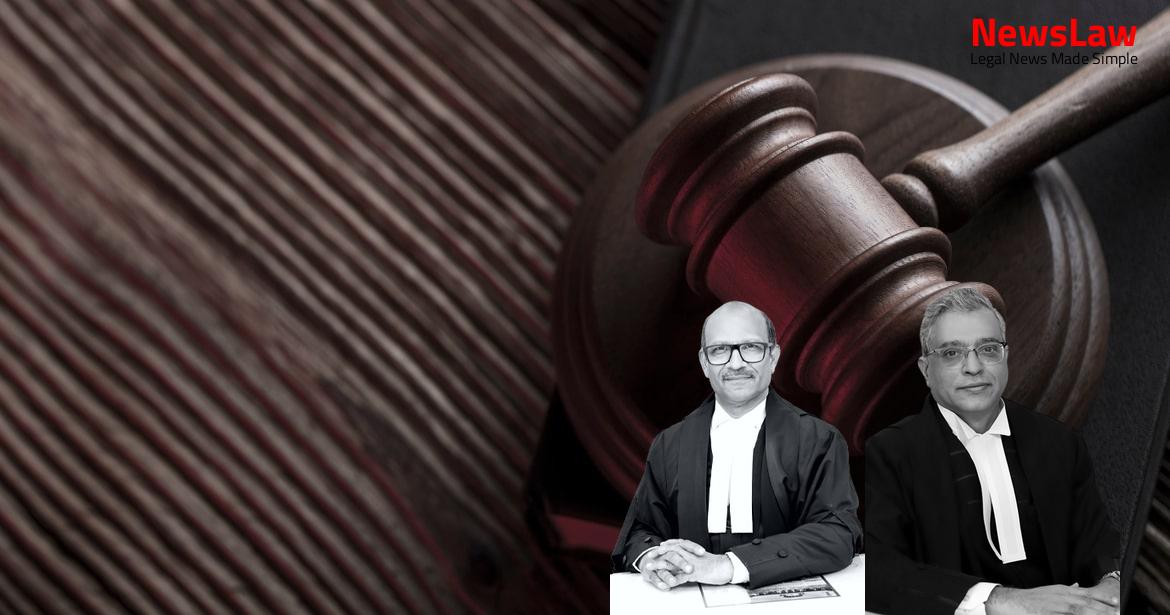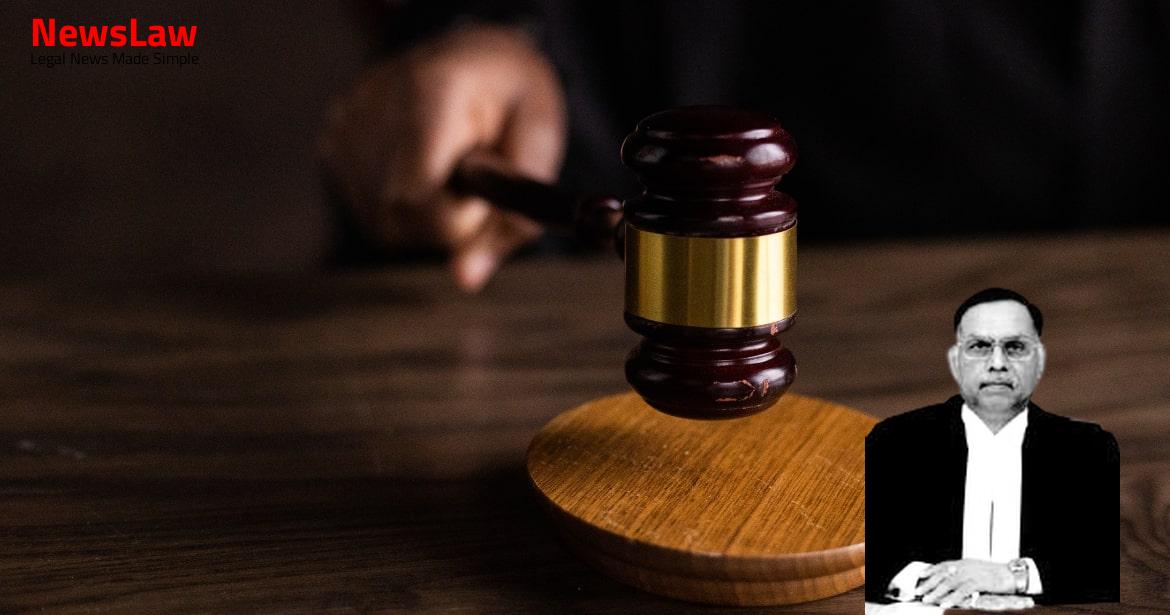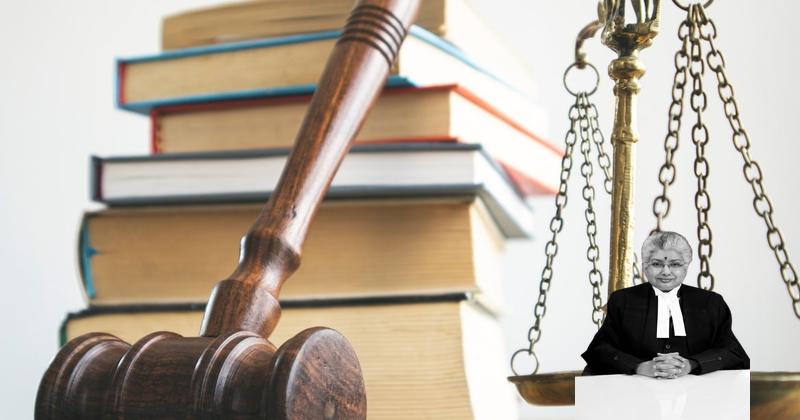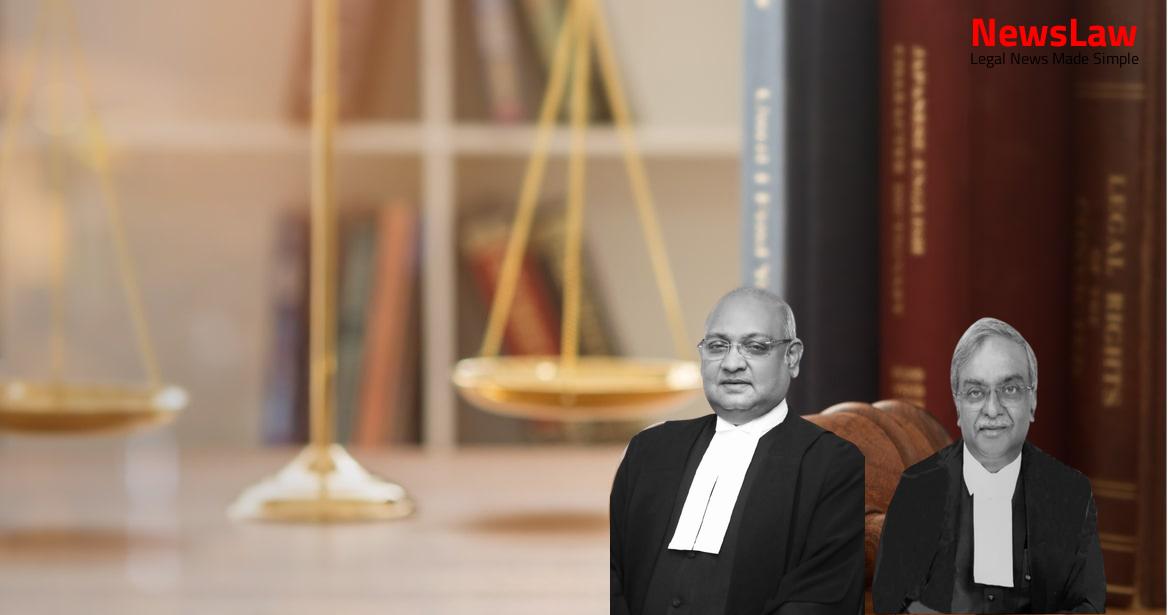In a recent landmark judgment by the Supreme Court of India, the case involving allegations of medical negligence has been carefully examined. The ruling focuses on upholding standard medical practices and ensuring accountability in the healthcare sector. This decision marks a significant step towards justice for the parties involved and sets a precedent for similar cases in the future.
Facts
- The appellant, a doctor, performed a surgery to remove stones on 11.09.2000 based on ultrasonography.
- The patient re-consulted the appellant for prescribed medications due to ongoing symptoms.
- The patient’s problems persisted leading to sepsis and multi-organ failure, resulting in death on 04.11.2000.
- The National Commission allowed the appeal and directed compensation of Rs. 7,00,000/- with 12% interest.
- A Medical Board found no medical negligence in the surgery performed by the appellant.
- Various tests, surgeries, and referrals were made as part of the treatment process.
- The respondent claimed compensation for his wife’s death due to alleged medical negligence.
- Allegations of deviation from standard medical practices were not substantiated.
- The patient continued to have complications such as stomach ache, constipation, and vomiting.
Also Read: Resignation Withdrawal Dispute: Supreme Court’s Landmark Judgment
Arguments
- The respondent’s counsel argued that the patient repeatedly complained about persisting pain in her abdominal area.
- It was emphasized that the patient’s complaints should not have been dismissed or overlooked.
- The argument focused on the need for proper attention to the patient’s ongoing pain issues.
Also Read: Allocation of Class III and IV Employees in TSRTC vs. Employees of APSRTC: Supreme Court Judgement
Analysis
- The National Commission correctly noted that the first ultrasonography results were doubtful in the records filed by Dr. P.N. Gupta.
- The National Commission found that Dr. P.N. Gupta’s conduct was negligent based on various factors.
- Dr. P.N. Gupta switched from minimally invasive to open surgery during gallbladder surgery but could not identify relevant structures yet proceeded with the procedure.
- Failure to issue a proper discharge summary was noted as a deficiency.
- Disregarding repeated complaints of stomach pain until the patient developed jaundice was highlighted.
- Delay in referring the patient for ERCP after the surgeries and failure to diagnose leakage cause were considered negligent actions.
- Bile duct injury is a known complication in Laparoscopic cholecystectomy, but the failure to detect and address it promptly was deemed negligent.
- The National Commission’s findings suggested that Dr. P.N. Gupta’s conduct did not align with standard medical practice.
- The National Commission applied the principles from the Jacob Mathew v State of Punjab case to determine medical negligence.
- The decision in Samira Kohli v Dr. Prabha Manchanda & Another was used to analyze valid consent in patient cases.
Also Read: Legal Battle: Delays in Commissioning Solar Power Project
Decision
- The appeal is partly allowed
- The order of the State Commission is set aside
- The appellant/complainant is directed to pay the sum of Rs.7 lakh as consolidated compensation, including cost
- The payment should be made within four weeks from the date of this order
- If the payment is not made within the specified time, the sum will be liable to be paid with interest at a rate of 12% per annum from the date of this order till realization
Case Title: P.N.GUPTA Vs. RAJINDER SINGH DOGRA (2024 INSC 705)
Case Number: C.A. No.-007262-007262 – 2012



